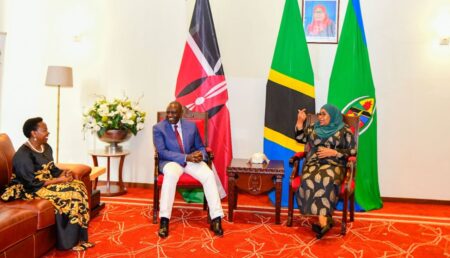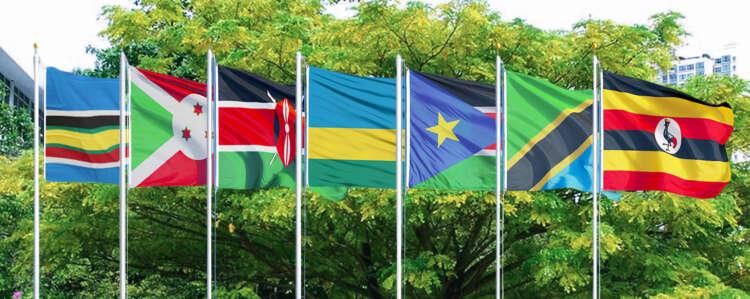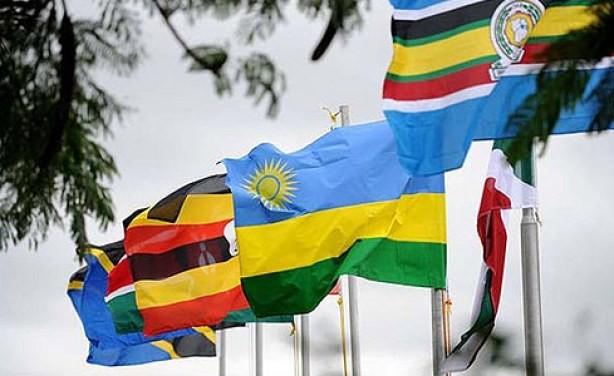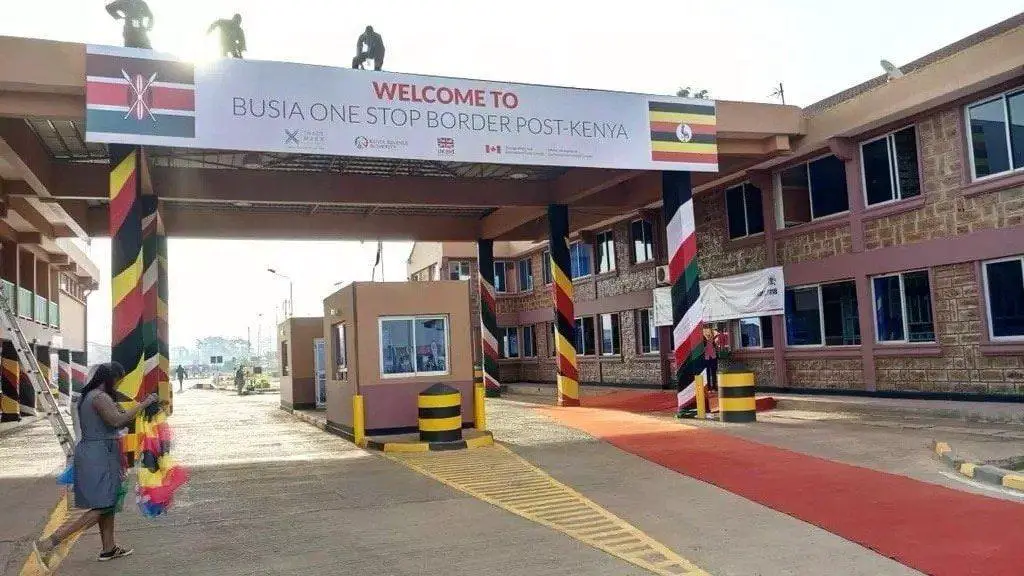- Africa’s new dawn: the rising role of digital and AI in agriculture
- Can Dangote Refinery Transform Africa Energy Ambition
- Gallup Survey: 80 per cent of Kenyan Workers Are Disengaged and Seek New Opportunities
- Madagascar Man Freed from 5KG Tumor After 15-Year Struggle
- How women in Africa are perceived and treated
- Sugar consumption in Kenya to Increase to 1.23 Million Tonnes
- Can Somalia and Turkey Oil deal Bring Change in Somaliland
- Remittances to Kenya dropped to $371.6 million in June, marking a six month low
Browsing: Intra EAC trade
- Non-tariff trade barriers are restrictions trade blocs impose to further their political and economic goals.
- Kenya and Tanzania are working on resolving non-tariff trade barriers that have stifled business between East Africa’s largest economies.
- Kenya is a crucial partner for Tanzania and is the largest source of African Foreign Direct Investment in Tanzania.
The East African Community
Countries have adopted regional trading blocs as a strategy to increase global competitiveness. The East African Community (EAC) member states are dedicated to enhancing economic efficiency and fostering regional integration through strategic investments using established industries.
EAC aims to position the Community as a single investment area, harmonising trade policies, investment incentives, and product standards.
At the beginning of its operations, EAC ended non-trade barriers (NTB) between member countries intending to liberalise trade. However, this affected the NTB imposed by the members, especially Kenya and Tanzania, who are critical traders in the market.…
The CET maximum rate was a realization by the EAC Secretariat on the proposed Common External Tariff (CET) rates of 30 per cent, 33 per cent and 35 per cent classified under the fourth (maximum) band, which include textiles, iron, steel and motor vehicles.
The East African Business Council (EABC) urges the partner states- Kenya, Uganda, Tanzania, Burundi, Rwanda and South Sudan- to adopt the maximum CET tariff trade to spur industrialization and strengthen the regional value chain.
In 2020, the total intra-EAC trade stood at 11.8 per cent, amounting to US$6.39 billion. The proposed 35 per cent tariff is set to boost the trade between EAC member states to US$6.4 billion.…
It all began on March 5th when the Agriculture and Food Authority (AFA) stopped any further imports of maize into Kenya with immediate effect.
This move was necessitated by the Kenyan government’s need to control the entry of unsafe maize. According to the ministry of agriculture, previous test results for maize imported from Uganda and Tanzania revealed high levels of mycotoxins consistently beyond safety limits. Mycotoxins particularly aflatoxins and fumonisins are carcinogenic.
This move by the government cast a shadow over the shortage of maize in the country, but the ministry was quick to reassure citizens of a stable maize supply stating, “The Ministry further wishes to avert fear over alleged shortage of maize in the country. Projections up to the end of May 2021 indicate a surplus of 11,807,681 90kg bags, with the price of maize expected to remain stable.”
Currently, the wholesale maize price is averaging Sh2,600/= …
A regional business umbrella body has called upon East Africa’s partner states to harmonise investment incentives and market the region as a single investment destination.
The East African Business Council (EABC) is counting on the six heads of EAC member states to merge marketing of the bloc and attract investors in the various opportunities available. One of the aspects the EABC recommends is harmonising incentives to make it easier for investors to pick the bloc from the rest of the continent.
East Africa has often been referred to as one of the fastest growing trading blocs in Africa. With a population of more than 177.2 million people the region presents a readily available demand for products and services that emerge from the prospective investments. The region also has a combined GDP size of more than US$147.5 billion.
A recent report by South Africa’s Rand Merchant Bank …
Since the Common Market Protocol was launched in 2010, trade between East African Community member states has increased by 60.75 per cent from $3.72 billion to $5.98 billion in 2018, the latest trade data show.
Despite non-tariff barriers (NTBs) continuously holding back the region’s potential, the Common Market Protocol has boosted trade in the region by easing the cross-border movement of goods and people.
The East Africa Community Trade and Investment Report shows that the value of intra-regional trade increased by 9.4 per cent to $5.98 billion in 2018 from $5.46 billion in 2017.
The growth was partly caused by EAC countries’ increased preference for trading with each other so as to counterbalance falling demand for the region’s products in European and US markets.
Also Read: Uganda, Rwanda record reduced trade flows
All EAC member states apart from Burundi recorded growth in trade with their regional counterparts, the report showed.…
When President Uhuru Kenyatta stepped out on his Harambee house offices to announce the measures to curb the spread of Novel Coronavirus, no one knew the effect it would have on the East African citizens. In his announcement, the President gave an allowance of 48 hours for non-Kenyans to arrive and be quarantined after which none will be allowed.
While the rules of engagement for a trade block like East African Community has been to allow the free movement of people, goods, and services, Coronavirus has stepped to challenge this notion, with most countries viciously guarding their borders against foreign entry.
In regional bodies like the European Union, the movement of people and goods across the region is becoming more difficult with border chaos being witnessed in countries traditionally with the easiest border crossing exercises.
In East Africa, crossing the boundary is even harder. After Kenya announced the crossing of …










